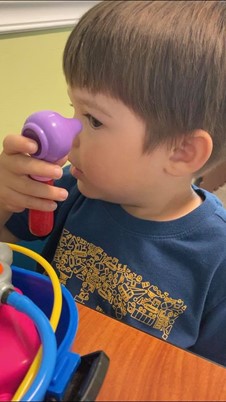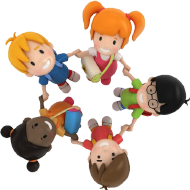

For example, in order to eat and drink independently some children will require a high of support from a multi-disciplinary team.
The skills of eating and drinking rely on having good hand-eye coordination, motor control and ability to chew and swallow, but this is not all. Motivation to eat is not just driven by hunger, but by the sensory experience food gives us. We associate the look, texture and smell of food with its flavor. We learn to look forward to foods that taste, smell and provide comfort to us. Children whose early feeding experiences have been unpleasant due to physical or sensory issues are more likely to have ongoing problems with food and independent eating.
CTC’s experienced team focuses on learning and development by working with the child to optimize remaining vision and rerouting information by creating new pathways to functional parts of the brain to facilitate learning. Understanding brain development and how pathways can be rerouted when injuries occur is crucial to rehabilitation. The human brain offers unlimited potential for growth and change, especially with the right interventions and facilitation. Contact us today to schedule your child’s evaluation.


